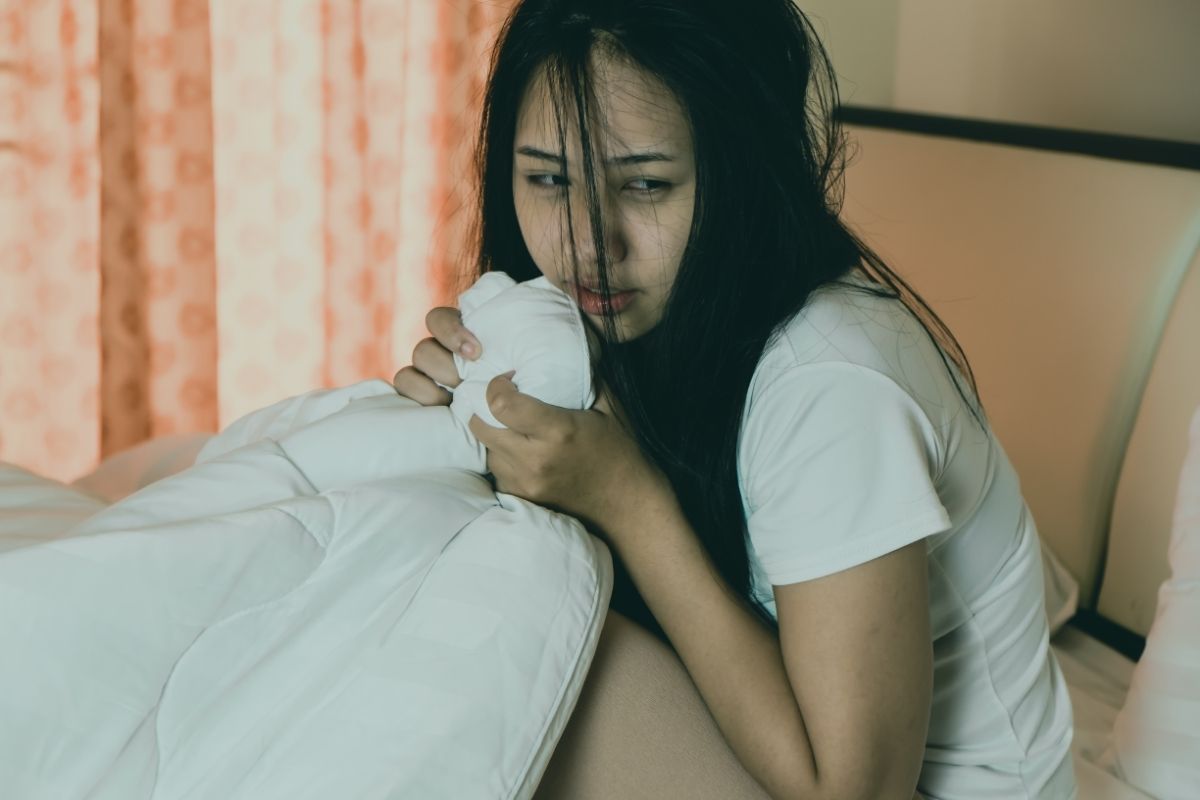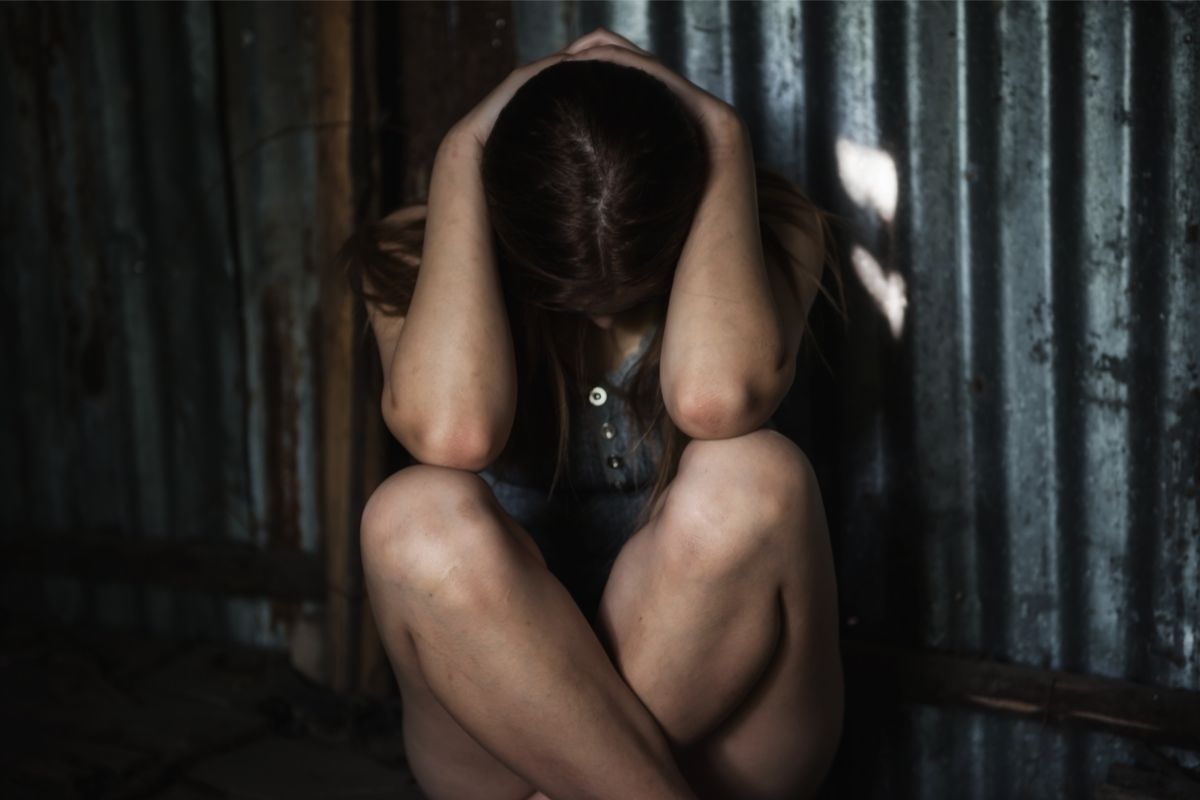Anxiety can cause psychosis in extreme cases, but it’s not common.
Imagine your mind as a pressure cooker.
Now and then, it lets off steam.
But what if the pressure keeps building?
That’s when things can get weird.
Millions of people wrestle with anxiety every year.
It’s like having a worried little voice in your head that never shuts up.
For some folks, it’s just a nuisance.
For others, it’s like carrying a boulder on their back.
But here’s the million-dollar question: can this pesky worry-wart in your brain turn into a full-blown hallucination?
Can anxiety make you see things that aren’t there?
Buckle up, buttercup!
We’re about to dive into the wild world of anxiety and psychosis.
You’ll learn why your brain sometimes plays tricks on you, and what you can do about it.
Whether you’re dealing with anxiety yourself or just curious about how our minds work, this guide is for you.
So, grab a cup of tea, get comfy, and let’s unravel this mental mystery together!
Psychosis: When Reality Takes a Vacation
Psychosis is like your brain deciding to take an unscheduled trip to Wonderland.
It’s when reality checks out, and imagination checks in.
People might see things that aren’t there, hear voices, or believe in some pretty wild ideas.
This mental rollercoaster can be triggered by a bunch of things.
Sometimes it’s a mental health issue, other times it’s a physical problem.
Drugs can cause it, and so can extreme stress.
It’s like your brain’s way of saying, “I can’t deal with this anymore, so I’m gonna make up my own reality!”
Psychosis often shows up in schizophrenia, usually in young adults.
But before the full-blown psychosis hits, there are usually some warning signs.
It’s like the trailer before the movie – weird behavior, unusual thoughts, that kind of thing.
Sometimes, psychosis is just a guest star in your mental health show.
This is called secondary psychosis.
It might be caused by drugs or some other medical issue.
The good news? Once you treat the cause, these episodes usually pack their bags and leave pretty quick.
Psychosis: The Warning Signs
Psychosis doesn’t just kick down your mental door and barge in.
It usually sends a few warning letters first.
You might notice problems with school, work, or even just taking care of yourself.
It’s like your brain is slowly unplugging from reality.
Other signs include feeling suspicious of everything, having trouble focusing, and feeling emotionally disconnected.
It’s like your emotions decided to take a vacation without you.
When psychosis really gets going, that’s when the hallucinations start.
You might hear voices, see things that aren’t there, or feel sensations that don’t make sense.
It’s like your brain is putting on its own personal Broadway show, and you’re the unwilling audience.
The Culprits Behind Psychosis
Psychosis isn’t picky about how it gets into your head.
It could be genetic – thanks, Mom and Dad!
Or it might show up after a traumatic event, like losing someone you love.
Sometimes, an injury or illness can roll out the red carpet for psychosis.
And let’s not forget about drugs.
Some substances, like amphetamines and cannabis, are known for throwing psychotic parties in some people’s brains.
It’s like they unlock a door in your mind that’s better left closed.
Taming the Psychosis Beast
The earlier you catch psychosis, the better.
It’s like weeds in a garden – pull them out early, and they’re less likely to take over.
Treatment usually involves a team of mental health pros working together.
They’re like the Avengers, but for your mind.
They’ll use a mix of medication, therapy, and self-care techniques to help you get back on track.
Antipsychotic meds are often part of the plan.
They’re like bouncers for your brain, keeping the psychotic symptoms in check.
But be careful – stopping these meds too soon can lead to a relapse.
It’s like quitting your job before you’ve found a new one.
Therapy is another big player in the treatment game.
Cognitive behavioral therapy (CBT) can teach you to spot when a psychotic episode is coming and how to handle it.
It’s like giving you a psychosis weather forecast.
Supportive psychotherapy is all about learning to live with psychosis.
It’s like getting a user manual for your new, slightly glitchy brain.
Anxiety: The Worry Wart of Mental Health
Anxiety is like that friend who’s always convinced something bad is about to happen.
We all feel anxious sometimes, but for some folks, anxiety is like a full-time job.
People with anxiety disorders often feel like they’re walking on eggshells all the time.
They might avoid certain places or situations because their anxiety tells them it’s not safe.
It’s like having an overprotective parent living in your head.
Anxiety disorders come in all shapes and sizes.
There’s generalized anxiety disorder, social anxiety, panic attacks, obsessive-compulsive disorder, post-traumatic stress disorder, and separation anxiety.
It’s like anxiety decided to open a franchise in your brain.
The Many Faces of Anxiety
Anxiety is like a chameleon – it shows up in all sorts of ways.
You might feel nervous, restless, or tense.
Some people feel like danger is always just around the corner.
Your heart might race, you might breathe faster, sweat more, or feel shaky.
Anxiety can make you feel weak and tired, like you’ve run a marathon when you’ve just been sitting on the couch.
It can mess with your sleep and make it hard to focus on anything but your worries.
It’s like your brain is stuck on a worry treadmill and can’t figure out how to get off.
Where Does Anxiety Come From?
Anxiety is like a surprise guest that shows up uninvited.
Sometimes it’s triggered by tough life experiences.
Other times, it seems to run in families, like a genetic hot potato.
Scientists are still trying to figure out exactly what causes anxiety.
It’s like they’re detectives, and anxiety is the sneaky criminal always one step ahead.
Kicking Anxiety to the Curb
When it comes to treating anxiety, talk therapy is a superstar.
Cognitive behavioral therapy (CBT) is like a personal trainer for your brain.
It teaches you new ways to think and act when anxiety comes knocking.
Exposure therapy is part of CBT.
It’s like facing your fears in a controlled environment.
Imagine it as a video game where you level up by conquering your anxieties.
Medication can also be a big help for many people with anxiety.
There are different types for different kinds of anxiety.
Finding the right one might take some trial and error, but it’s worth it.
It’s like finding the right key for a stubborn lock.
When Anxiety Goes Off the Deep End: Can It Cause Psychosis?
Now, here’s where things get really interesting.
Can anxiety actually cause psychosis?
The short answer is: sometimes, but it’s rare.
Research shows that psychotic symptoms can pop up after a traumatic event or a panic attack.
It’s like anxiety cranks up the volume so high that reality starts to distort.
Severe anxiety disorders, especially panic disorder and PTSD, can sometimes lead to psychotic symptoms.
It’s like anxiety opens a door in your mind that’s usually kept locked.
Usually, anxiety doesn’t cause psychosis.
But if it’s left untreated and gets really bad, it can lead to some pretty out-there thinking and behavior.
It’s like anxiety is a pressure cooker, and psychosis is what happens when the pressure gets too high.
Figuring Out What’s What: Diagnosis and Treatment
Getting the right diagnosis is super important.
It’s like having a map – you need to know where you are before you can figure out where to go.
Mental health pros look at the whole picture.
They’re like detectives, piecing together clues from your thoughts, feelings, and behaviors.
Treatment usually involves a mix of therapy and medication.
It’s like a one-two punch against anxiety and psychosis.
Therapy, especially CBT, can help you learn to manage your symptoms.
It’s like getting a user manual for your brain.
Medication might include antipsychotics, antidepressants, or anti-anxiety meds.
It’s like giving your brain the tools it needs to fight back against anxiety and psychosis.
The Bottom Line
Whether you’re dealing with anxiety, psychosis, or both, these conditions can really mess with your head.
They can affect how you think, feel, and act in a big way.
There are lots of different combinations and levels of these conditions.
Some are mild, like a mental paper cut.
Others can be really tough to deal with, like a mental broken leg.
If you think you might have a mental health condition, don’t try to tough it out alone.
Reach out to a mental health pro.
Without treatment, these conditions usually get worse over time.
It’s like ignoring a leaky pipe – eventually, you’ll end up with a flooded house.
But here’s the good news: with the right treatment, people with mental health conditions can get better and live happy, healthy lives.
It’s like learning to dance in the rain instead of waiting for the storm to pass.
Remember, your mind is a powerful thing.
Take care of it, and it’ll take care of you!



